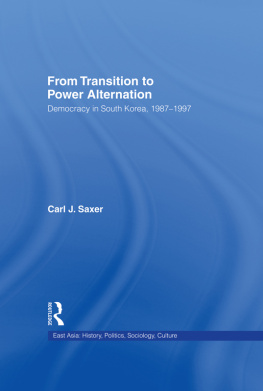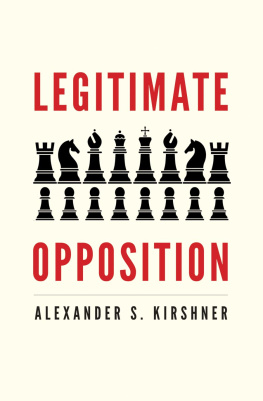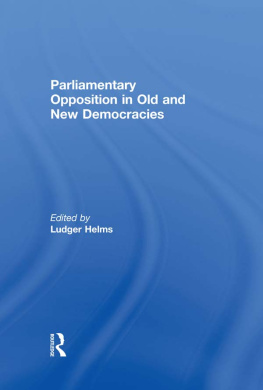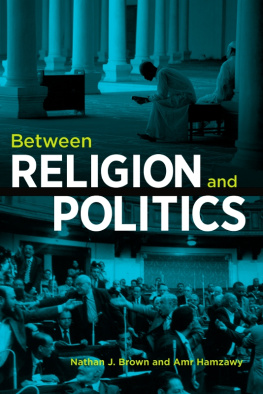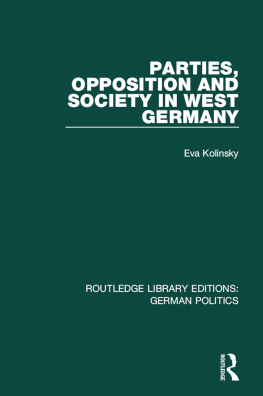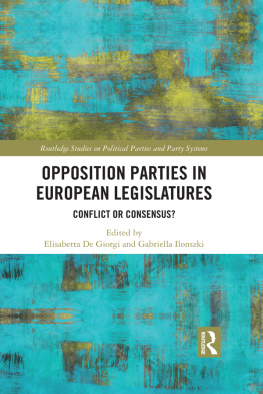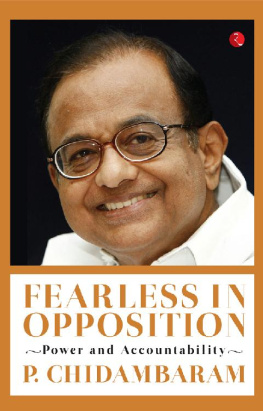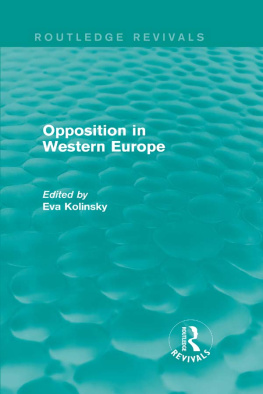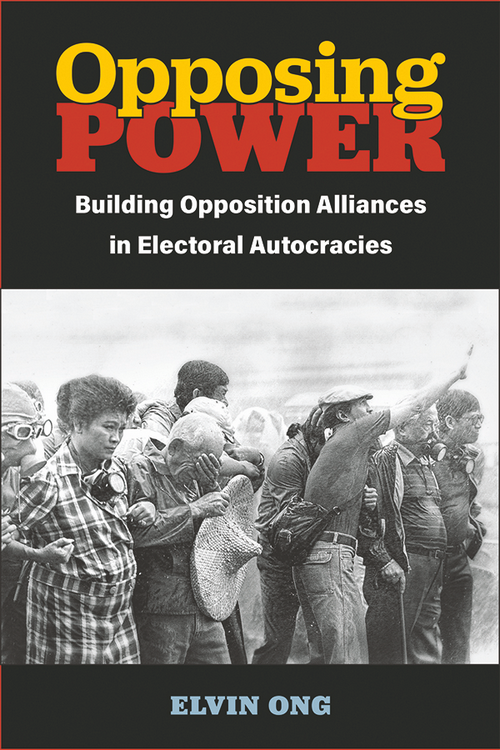
Page i Opposing Power
Page ii Weiser Center for Emerging Democracies
Series Editor
Dan Slater is Professor of Political Science, Ronald and Eileen Weiser Professor of Emerging Democracies, and Director of the Weiser Center for Emerging Democracies (WCED) at the University of Michigan. dnsltr@umich.edu
The series highlights the leading role of the University of Michigan Press, Weiser Center for Emerging Democracies, and International Institute as premier sites for the research and production of knowledge on the conditions that make democracies emerge and dictatorships endure.
The Dictators Dilemma at the Ballot Box: Electoral Manipulation, Economic Maneuvering, and Political Order in Autocracies
Masaaki Higashijima
Opposing Power: Building Opposition Alliances in Electoral Autocracies
Elvin Ong
The Development of Political Institutions: Power, Legitimacy, Democracy
Federico Ferrara
Aid Imperium: United States Foreign Policy and Human Rights in Post-Cold War Southeast Asia
Salvador Santino F. Regilme Jr.
Opposing Democracy in the Digital Age: The Yellow Shirts in Thailand
Aim Sinpeng
Economic Shocks and Authoritarian Stability: Duration, Financial Control, and Institutions
Victor C. Shih, Editor
Electoral Reform and the Fate of New Democracies: Lessons from the Indonesian Case
Sarah Shair-Rosenfield
Campaigns and Voters in Developing Democracies: Argentina in Comparative Perspective
Noam Lupu, Virginia Oliveros, and Luis Schiumerini, Editors
Page iii Opposing Power
Building Opposition Alliances in Electoral Autocracies
Elvin Ong
University of Michigan Press
Ann Arbor
Page iv Copyright 2022 by Elvin Ong
Some rights reserved

This work is licensed under a Creative Commons Attribution-NonCommercial-NoDerivatives 4.0 International License. Note to users: A Creative Commons license is only valid when it is applied by the person or entity that holds rights to the licensed work. Works may contain components (e.g., photographs, illustrations, or quotations) to which the rightsholder in the work cannot apply the license. It is ultimately your responsibility to independently evaluate the copyright status of any work or component part of a work you use, in light of your intended use. To view a copy of this license, visit http://creativecommons.org/licenses/by-nc-nd/4.0/
For questions or permissions, please contact um.press.perms@umich.edu
Published in the United States of America by the
University of Michigan Press
Manufactured in the United States of America
First published May 2022
A CIP catalog record for this book is available from the British Library.
Library of Congress Cataloging-in-Publication data has been applied for.
Library of Congress Control Number: 2022931217
ISBN 978-0-472-13300-0 (hardcover : alk. paper)
ISBN 978-0-472-03888-6 (paper : alk. paper)
ISBN 978-0-472-90272-9 (open access e-book)
DOI: https://doi.org/10.3998/mpub.12001520
An electronic version of this book is freely available, thanks in part to the support of libraries working with Knowledge Unlatched (KU). KU is a collaborative initiative designed to make high quality books Open Access for the public good. More information about the initiative and links to the Open Access version can be found at www.knowledgeunlatched.org.
The University of Michigan Presss open access publishing program is made possible thanks to additional funding from the University of Michigan Office of the Provost and the generous support of contributing libraries.
Cover illustration: Philippine opposition leaders protesting against the Marcos administration in Quezon City, September 27, 1984. Photo courtesy of Jacinto Tee.
Page v Contents
Digital materials related to this title can be found on the Fulcrum platform via the following citable URL: https://doi.org/10.3998/mpub.12001520
Page vii Acknowledgments
This book began as a dissertation project when I undertook graduate studies at Emory Universitys Department of Political Science. I am grateful to my dissertation committee for their long-standing guidance and mentorship, both during its inception and at its later stages. My dissertation cochairs, Richard Doner and Jennifer Gandhi, were always generous, patient, and kind with their feedback and comments. Adam Glynn provided useful feedback on key aspects of the design, implementation, and interpretation of surveys I conducted in Malaysia, which have since grown into extensions beyond this book project. During my time at Emory, other faculty in the department also subtly molded my thinking about the practice and research of politics. Nuggets of insights from Dan Reiter, Thomas Remington, Jeff Staton, Eric Reinhardt, Danielle Jung, Andra Gillespie, and Thomas Lancaster can be found scattered throughout this book. Without the sharp training under their wings, this book would not have been possible.
Outside of Emory, I am indebted to the professional advice from numerous senior scholars at various stages of the book-writing process. Many of them are involved in the Southeast Asia Research Group (SEAREG) and have read and provided feedback on numerous shorter and longer versions of this book. They include Dan Slater, Tom Pepinsky, Allen Hicken, Eddy Malesky, Amy Liu, Kai Ostwald, Steven Oliver, Erik Kuhonta, Risa Toha, Paul Schuler, Jacob Ricks, Bridget Welsh, Meredith Weiss, Kikue Hamayotsu, Netina Tan, Lynette Ong, Lee Morgenbesser, Aim Sinpeng, Aries Arugay, Jean Hong, Jai Kwan Jung, Yuko Kasuya, Hidekuni Washida, Rachel Riedl, Michael Wahman, Adam Ziegfeld, and Leonardo Arriola, among others. In their numerous ways, they helped shape the book into what it is now. Dan, in particular, was instrumental and generous in hosting a book workshop for the completed manuscript. It turned the book into a much more focused piece of research, making it Page viii a steep improvement from its previously muddled versions. I am particularly appreciative of Michael Wahman, Adam Ziegfeld, Hanisah Abdullah Sani, and Masaaki Higashijima, all of whom gave their precious time and feedback during the book workshop.
In Malaysia and Singapore, especially at National University of Singapore (NUS), the book benefited from my numerous conversations with fellow colleagues. I would like to thank Terence Lee, Ian Chong, Sooyeon Kim, Deepak Nair, Bilveer Singh, Hyejin Kim, Mohamed Nawab, Donald Low, Kenneth Paul Tan, Wong Chin Huat, Terence Gomez, Joel Moore, Lee Hwok Aun, Tricia Yeoh, Shaun Kua, and John Donaldson. Terence Lee and John Donaldson deserve special mention. John started my political science training when I was a budding undergraduate at Singapore Management University. His shadow can be found lurking on numerous pages. Terence plucked me from relative obscurity while I was in my third year of graduate studies. He piled me with opportunities that turbocharged the research for this book, and advocated for me when I found myself at a dead end. My local research assistants, Immanuela Asa Rahadini, Angela Lim Pei Rong, Esther Lam, and Sabrina Hardy, were all resourceful, independent, and brilliant. I could not have asked for a better team. Thiyaghessan Poongundranar provided invaluable assistance at the eleventh hour.
Graduate studies and book writing can be a lonely endeavor. I am immensely grateful to have found peer support from Kirsten Widner, Kevin Brown, Nancy Arrington, Steven Webster, Drew Wagstaff, Travis Curtice, Josh Fjestul, Lizzy Weiner, Sebastian Dettman, Maryhen Jimenez Morales, Ryan Tans, Jared Bok, Walid Jumblatt Abdullah, Kay Key Teo, Lin Hongxuan, Su Jun Jie, Angela Poh, Jack Chia, Hanisah Abdullah Sani, Wei-Ting Yen, Carmen Jacqueline, Minjung Kim, Nhu Trong, Jessica Soedirgo, Harvey Cheong, Eitan Paul, Dani Nedal, Alec Nash, Caiwei Huang, Mark Youngyuen, Tommy Koh, Clare Kim, Isabel Chew, Nathan Peng Li, Stanley Chia, Edgar Liao, Louisa-May Khoo, Vanessa Banta, Shravan Krishnan, Nila Utami, Constant Courtin, Lui Xia Lee, Salihin Subhan, and Teilhard Paradela. Some of them opened up their homes to me when I needed short-term accommodation. Others directed me to particular empirical sources. We commiserated with each other over numerous meals at school, at our homes, at conferences, in the field, and at the airport.
Next page

